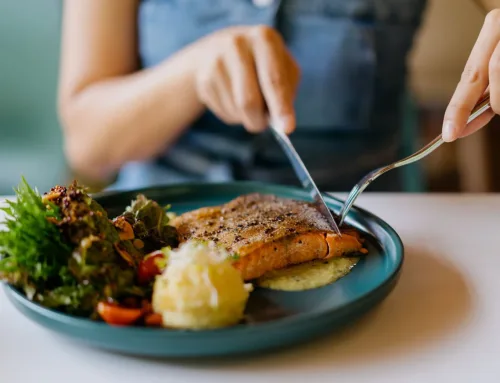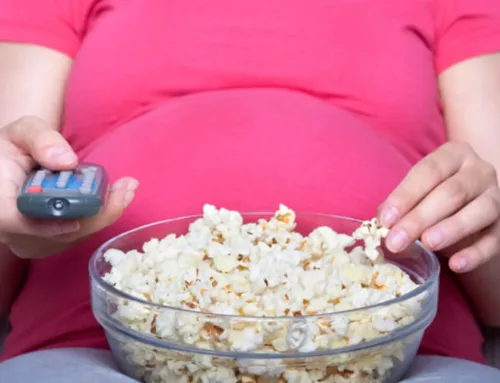Experiencing anxiety after eating can be both confusing and distressing. For many, meals are a time to relax and enjoy, but for some, they can trigger feelings of unease and anxiety. Understanding why this happens and how to manage it is crucial for maintaining both mental and physical health.
Key Takeaways
- Common Causes: Blood sugar fluctuations, food sensitivities, digestive issues, and psychological factors.
- Symptoms: Physical and psychological signs such as heart palpitations, sweating, and feelings of dread.
- Health Implications: Potential long-term effects on overall well-being.
- Management Strategies: Dietary adjustments, mindfulness practices, and seeking professional help.
What is Postprandial Anxiety?
Postprandial anxiety refers to feelings of anxiety that occur after eating. Unlike general anxiety, this type specifically arises in response to food consumption and can vary in intensity from mild discomfort to severe panic attacks.
Common Causes of Anxiety After Eating
Blood Sugar Levels
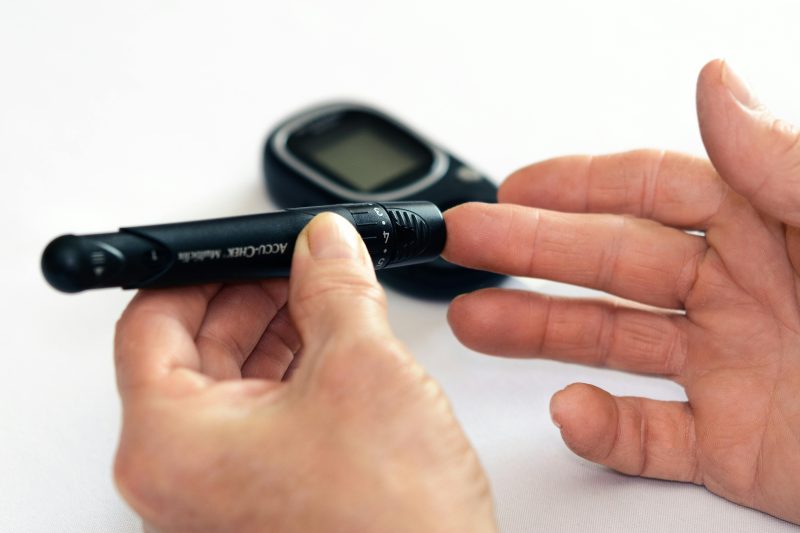
Fluctuations in blood sugar levels are a common trigger for anxiety after eating. When you consume a meal high in sugar or simple carbohydrates, your blood sugar spikes, followed by a rapid drop. This rollercoaster effect can lead to symptoms of anxiety.
Examples of Foods That Impact Blood Sugar:
- Sugary snacks like cookies and candies.
- High-carb foods such as white bread and pasta.
- Sweetened beverages like soda and energy drinks.
Food Sensitivities and Allergies
Food intolerances and allergies can also lead to anxiety. When your body reacts negatively to certain foods, it can trigger an immune response that includes anxiety as a symptom.
Common Allergens:
- Dairy
- Gluten
- Nuts
- Shellfish
Digestive Issues
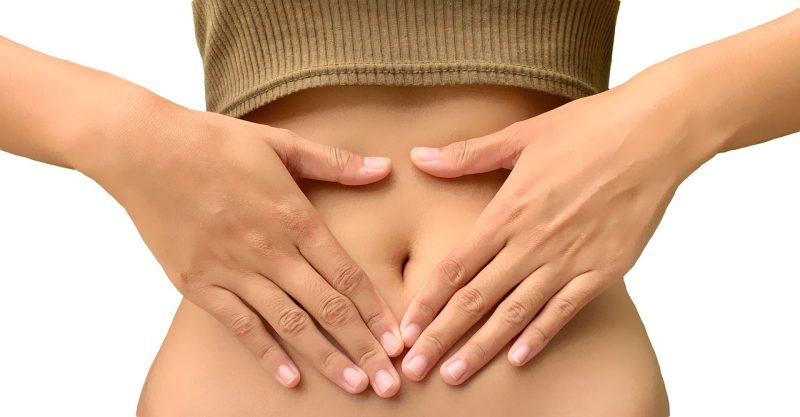
The health of your gut has a direct impact on your mental health. Digestive issues such as irritable bowel syndrome (IBS) or gastroesophageal reflux disease (GERD) can exacerbate anxiety, especially after meals.
Gut Health and Anxiety:
- Poor digestion can lead to inflammation and stress on the body, which can, in turn, affect mental well-being.
- Maintaining a healthy gut through a balanced diet and probiotics can help reduce anxiety symptoms.
Psychological Factors
Psychological factors, including stress and eating disorders, play a significant role in postprandial anxiety. Those with a history of eating disorders or high-stress levels may find that meals trigger anxiety due to negative associations or fears related to food.
Identifying Symptoms of Anxiety After Eating
Physical Symptoms
❤️🩹 Heart palpitations
😰 Sweating
😵💫 Dizziness
😮💨 Shortness of breath
Psychological Symptoms
😤 Feelings of dread
😱 Panic attacks
😨 Nervousness
🥵 Irritability
Health Implications: Potential Long-Term Effects
Ignoring anxiety after eating can lead to chronic stress and other health issues, impacting your overall quality of life. It’s essential to address these symptoms early to prevent long-term complications.
Management and Prevention Strategies
Balanced Meals
Eating balanced meals that include a mix of protein, healthy fats, and complex carbohydrates can help stabilize blood sugar levels and reduce anxiety.
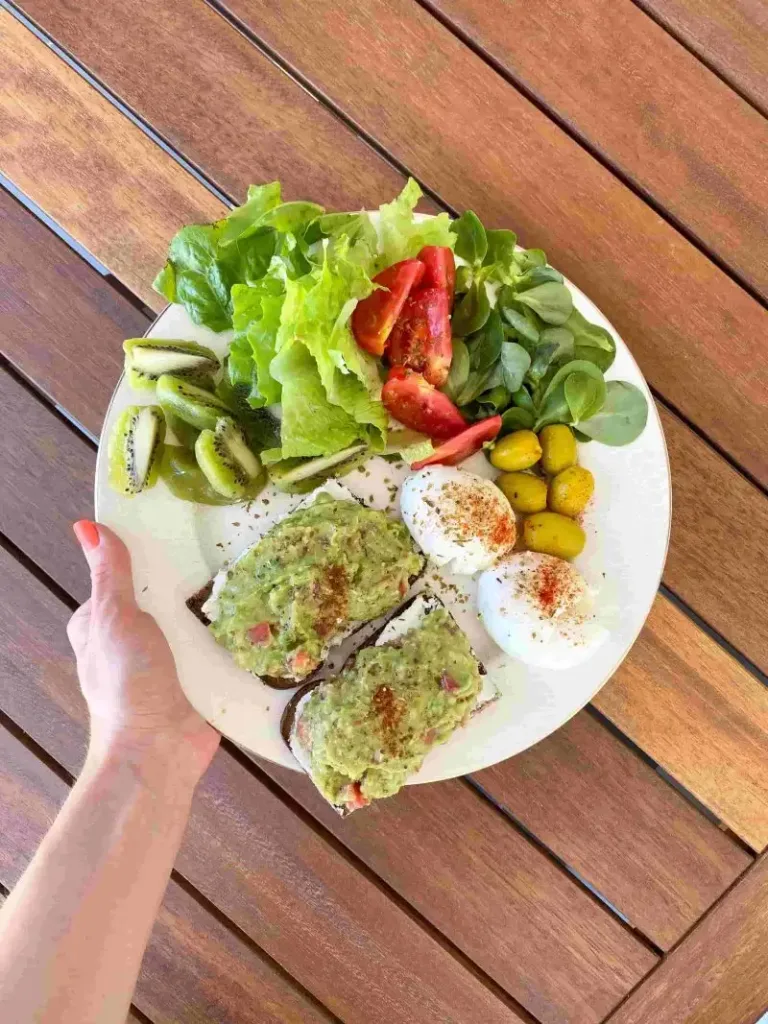
Anxiety-Friendly Foods:
😤 Leafy greens
🍗 Lean proteins like chicken and fish
🍞 Whole grains
🥑 Healthy fats such as avocados and nuts
Avoiding Triggers
Identifying and avoiding foods that trigger anxiety is crucial. Keeping a food diary can help track which foods cause symptoms.
Mindfulness and Stress Management
Mindful Eating Practices
Mindful eating involves paying full attention to the experience of eating behavior and drinking. This practice can help reduce anxiety by promoting a more relaxed and enjoyable mealtime experience.
Techniques for Mindful Eating:
- Eat slowly and chew thoroughly.
- Focus on the taste, texture, and aroma of your food.
- Avoid distractions like TV or smartphones during meals.
Stress Reduction Techniques
Incorporating stress reduction techniques such as meditation, yoga, and deep breathing exercises can significantly help manage anxiety after eating.
Medical and Professional Help

My Personal Experience and Steps to Overcome Anxiety After Eating
It’s essential to understand the connection between your physical, psychological, and emotional state, which can trigger anxiety after eating. In my experience, it’s often not just one reason behind it, but a combination of multiple factors. For example, poor nutrition, lack of vitamins, and stress at work can all contribute and eventually lead to deeper food disorders.
To address this issue, it’s important to analyze your current health condition on every level and take gradual steps to implement the recommendations from this article. Here are the steps I followed to overcome anxiety after eating:
Start analyzing what you eat
Every week, replace a few fast food or unhealthy products with healthy versions. For example, switch from white bread to wholegrain bread, white rice to brown rice, and milk chocolate or Snickers to dark chocolate (at least 70% cacao) or sugar-free chocolate bars.
Observe how you eat
Check your mood, how fast you eat, and why you eat. This will help you understand whether you have emotional eating or physical hunger. Implement mindfulness into your life by starting with 5-7 minutes of guided meditation per day.
Assess your stress levels
Determine your stress level from 1 to 10. Try to understand the causes and how you can reduce them. Often, past traumas and negative situations memorized in our bodies can cause anxiety. It is usually hard to overcome this on your own, so try to seek help from a psychologist or holistic health coach who can determine the root of the problem and help you let it go.
If you feel the need for support and professional help, please check out my holistic health packages. For a free 30-minute discovery call, simply fill out this form, and I will get back to you soon.
FAQs About Anxiety After Eating
Why do I feel anxious after eating certain foods?
Certain foods can cause blood sugar spikes, allergic reactions, or digestive issues, all of which can trigger anxiety.
Can anxiety after eating be a sign of an underlying health condition?
Yes, it can indicate underlying conditions such as food intolerances, digestive disorders, or psychological issues.
What immediate steps can I take to reduce anxiety after eating?
Try deep breathing exercises, drink water, and avoid foods that you know trigger anxiety.
Conclusion
Experiencing anxiety after eating can be challenging, but understanding its causes and learning how to manage it can significantly improve your quality of life. By making dietary adjustments, practicing mindfulness, and seeking professional help when necessary, you can reduce and prevent anxiety after meals.
Explore More Resources:
Learn more about Nutrition and Yoga Program.
Explore tips on Mindfulness and Stress Management.


